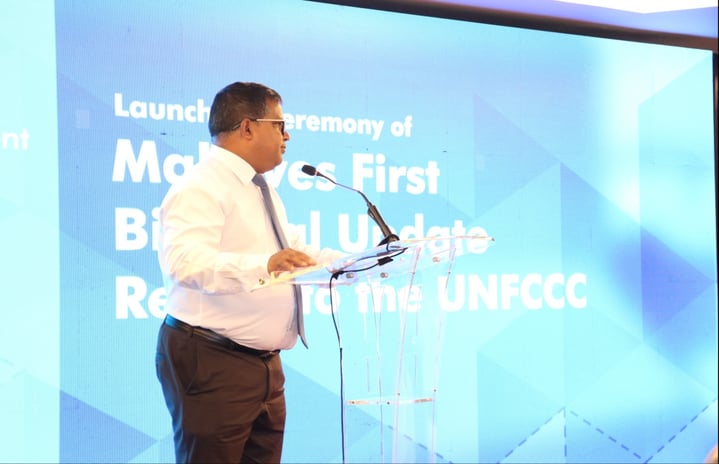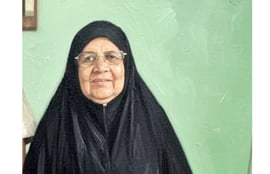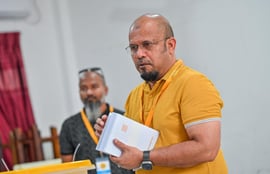Minister of Environment Dr Hussain Rasheed Hassan on Thursday, launched the Maldives' First Biennial Update Report (BUR) to the United Nations Framework Convention on Climate Change (UNFCCC).
"Maldives is among the most vulnerable and least defensible countries to the projected impacts of climate change. Climate change is therefore, a critical threat to the very existence of our island nation", said the minister.
He further emphasised the need for Maldives to divest from fossil fuels and explore alternative solutions in meeting energy consumption needs.
The report contains the latest data on greenhouse gas (GHG) emissions, mitigation efforts and touched upon global financial assistance within the field of climate change.
The GHG inventory was calculated using two methodologies - a sectoral and a reference approach. The ministry prepared the inventories through 2001-2015 in their reference approach and 2011-2015 in their sectoral approach.
According to the study, the total emissions for 2015 was recorded at 1,536.04 gigagrams (1.54 megatons) of CO2. Emissions are comprised of two main sources, energy production and waste. A total of 95.8 percent of emissions are produced for energy requirements while 4.2 percent is produced by waste combustion.
Within the energy sector, the majority of GHGs are emitted through electricity production while transportation is the second largest source of emissions.
Classifying emissions into national economic activities, tourism shares 40 percent of total emissions. The second largest emissions are from residential use at 38 percent, followed by the transport industry at 18 percent.
Environment Ministry also noted the lack of a national measurement, reporting and verification (MRV) system. Although individual projects collect and track project progress, it is tracked on an ad-hoc basis and usually only during the project period.
"The evaluation of the existing institution setup shows a dire need for the establishment of a robust MRV system in the country".
The report highlighted five sectors to further improve the process, including; Legal, Institutional, Procedural, Availability and Management data for MRV systems and indicators for mitigation actions.
In order to tackle the gaps identified within MRV, the ministry is working with partners to design a comprehensive MRV system for mitigation.
The government is also preparing a proposal for a 'Capacity Building Initiative for Transparency' (CBIT). The project focuses on two key areas; a tagging system to identify government budget allocation, and a system to collate information on climate change support from non-government, national and international actors.
"The key output of this would be a web-based reporting system for climate finance and transparent display of finance received".
Summary of Climate Finance
- Climate change related finances stem from the national budget: 35 percent
- Aid from concessional loans : 34 percent
- Global climate investments in physical infrastructure: 85 percent
Moreover, roughly 59 percent of all financial assistance is provided for climate mitigation projects.
Approximately 30 percent of climate finance within capacity building may not be recorded due to inconsistencies in donor reports and data held by the ministry.
Maldives, the Chair of the Alliance of Small Island States (AOSIS), is party to the UNFCCC and is one of the first countries to ratify the Kyoto Protocol and the Paris Agreement.
As per UNFCCC, developing countries that are party to the convention must submit their first update by December 2014 and after every two years. However, countries classified as 'Least Developing States' (LDC) and 'Small Island Developing States' can submit their reports at their discretion.




